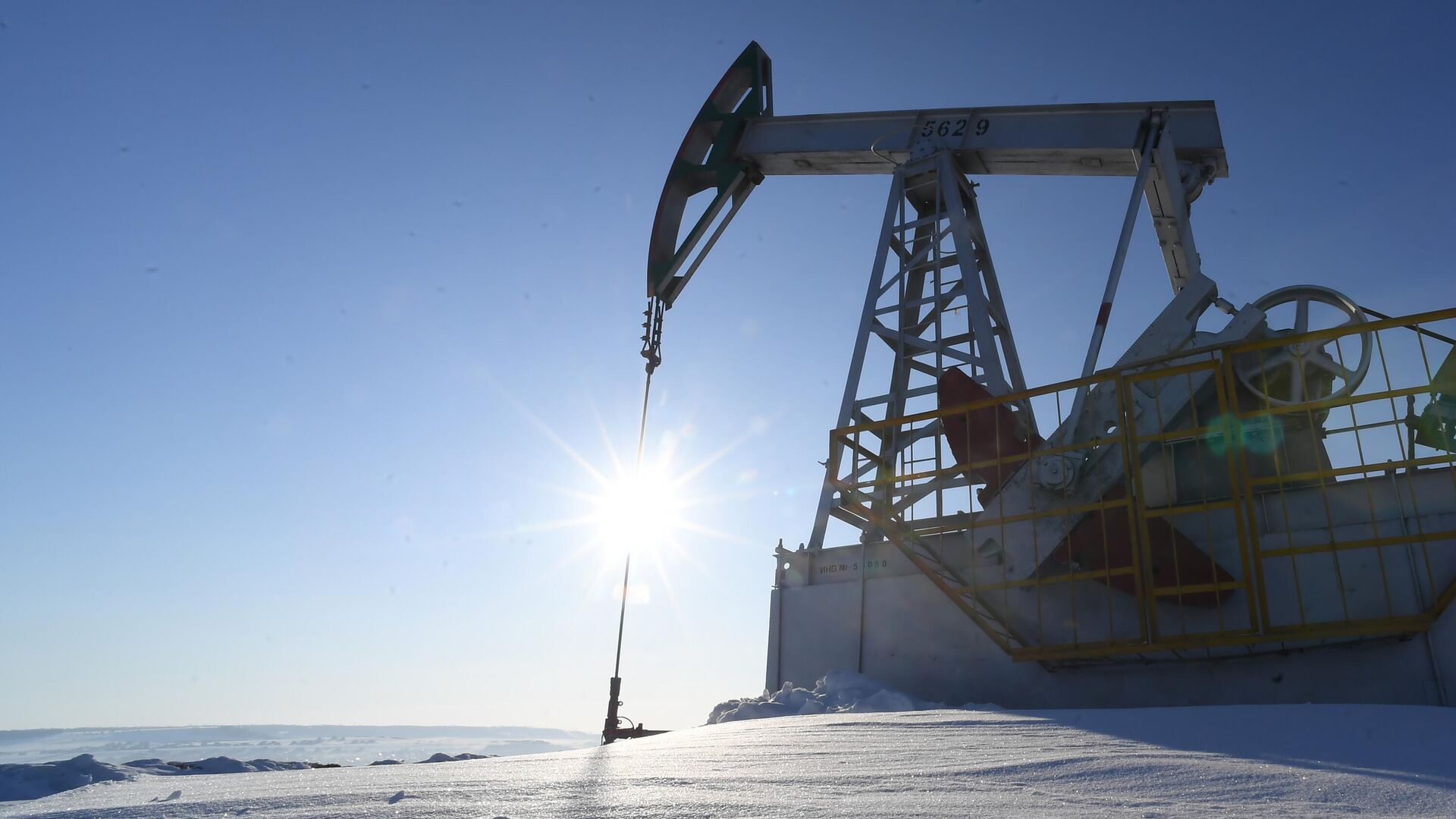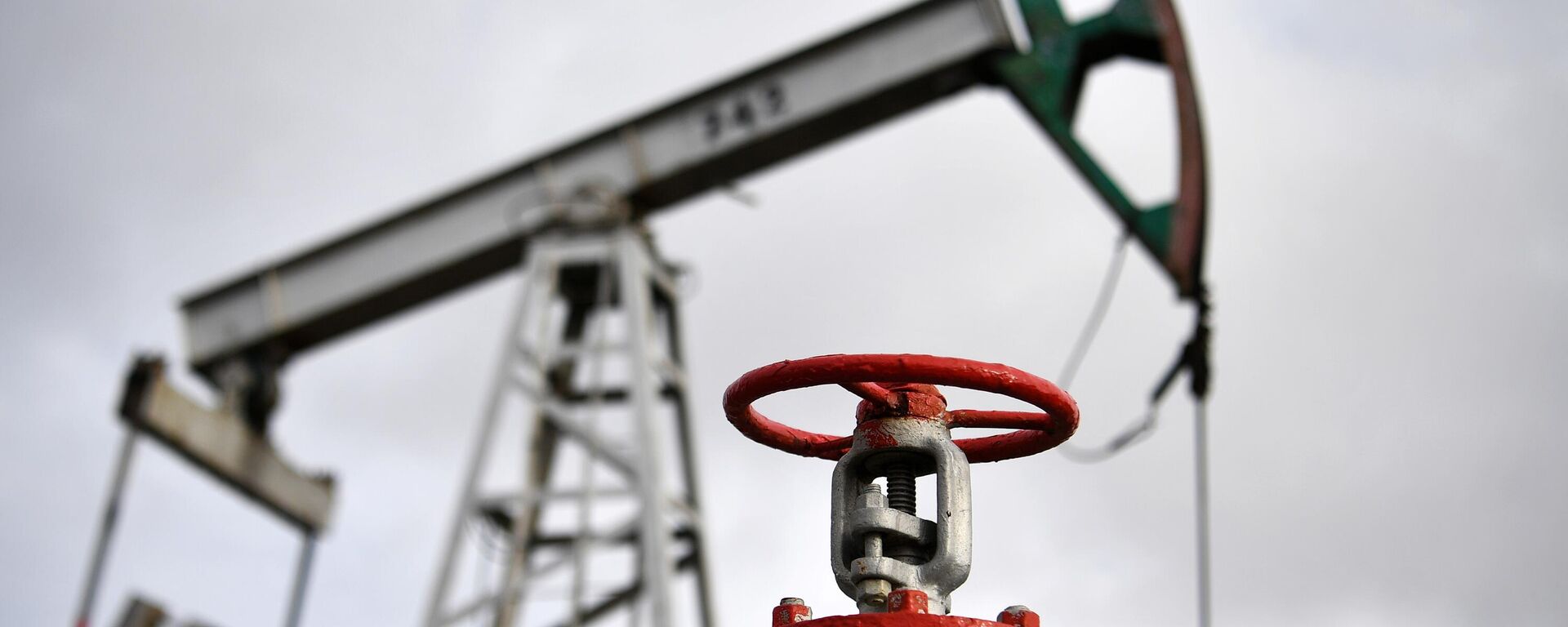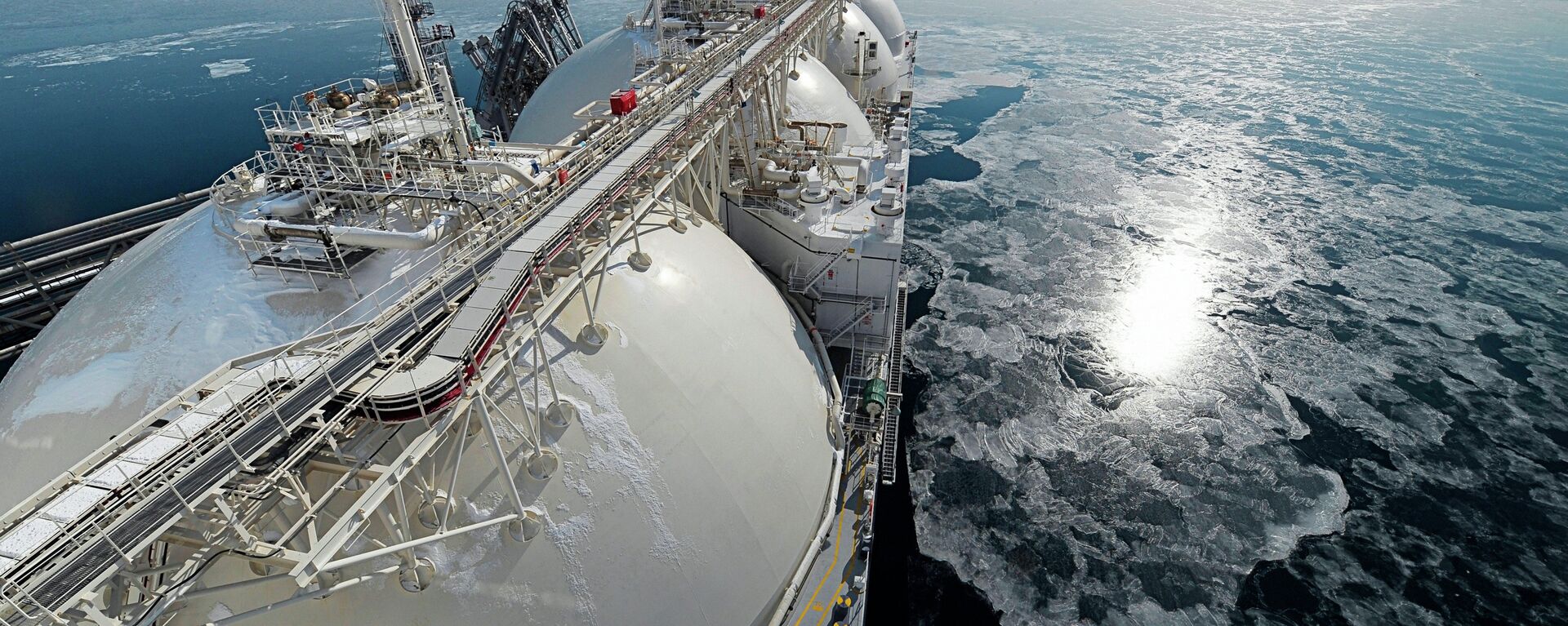https://sputnikglobe.com/20230320/g7-may-compromise-with-eu-symbolically-lower-russian-oil-price-cap-amid-split-over-revision-1108596476.html
G7 May 'Compromise' With EU, Symbolically Lower Russian Oil Price Cap Amid Split Over Revision
G7 May 'Compromise' With EU, Symbolically Lower Russian Oil Price Cap Amid Split Over Revision
Sputnik International
The G7 may take a compromise decision with the EU to symbolically lower the Russian oil price cap, according to Russian stock market expert.
2023-03-20T12:44+0000
2023-03-20T12:44+0000
2023-03-20T12:44+0000
world
russia
2022 russian oil price cap
oil price
sanctions
g7
european union (eu)
ukraine crisis
joe biden
janet yellen
https://cdn1.img.sputnikglobe.com/img/07e6/0b/0c/1104045331_0:11:2990:1693_1920x0_80_0_0_bf22c45c86f90bbb7c6667c5b51f3518.jpg
There is a split between the Group of Seven (G7) nations and the European Union (EU) regarding the reevaluation of the $60 per barrel price cap on Russian oil that went into effect on December 5, 2022, a Russian stock market expert claimed.The positions of the two sides are now diametrically opposed, so the decision to reappraise the cap in March may be delayed, according to Yevgeny Mironyuk of the financial holding BCS World of Investments.The G7 nations are scheduled to review the price cap on Russian oil to determine whether any recalibration is needed, as per the agreement reached late last year. However, amid differences between the G7 and Brussels, a compromise option is also possible, with a symbolic lowering of the cap by $5, to $55 per barrel, the expert added.Earlier in March, US Assistant Secretary of the Treasury Elizabeth Rosenberg said that the G7 countries intended to revise the price ceiling for Russian oil later in the month. Media reports indicated that some countries, such as Poland, Lithuania, and Estonia, are proposing to lower it from $60 to $51.45 per barrel. However, reports have suggested that the G7 countries, in particular the United States, did not back a change to the Russian oil price cap.Mironyuk cited US media reports claiming that US President Joe Biden told European Commission President Ursula von der Leyen during a recent White House meeting that Washington was averse to adjusting the oil price cap. The expert explained that such a position is justified by the strong dependence of the American economy on global oil prices.As for the economies of Poland and the Baltic states that have repeatedly pressed for a cap below $60 a barrel, they also depend on energy prices, but the impact on their GDP growth is less significant. For these countries, the political posturing towards Russia is fundamental, the expert concluded.Earlier, a Russian energy expert suggested it would be unprofitable for the United States if the price cap for Russian oil were revised downwards, since this mechanism also affects prices for American producers."Even before the ceiling was imposed, [Russian] companies were able to move into new markets mainly through the provision of discounts, and this forced dumping, which intensified after the cap was introduced and has a downward effect on overall world oil prices," Sergey Kolobanov, deputy head of the Department of Fuel and Energy Sectors at the Central Center for Strategic Research, told Sputnik.As part of sanctions against Russia over its special military operation in Ukraine, on December 5, 2022, an embargo on maritime Russian oil shipments to the European Union came into force. G7 nations, the EU and Australia also agreed on a price cap for Russian oil delivered by sea. It was set at $60 a barrel, to be reviewed every two months so that it can remain at five percent below the International Energy Agency benchmark.Furthermore, as of February 5, 2023, Brussels had agreed to the European Commission's proposal of a $100 per barrel ceiling for Russian diesel fuel, and $45 per barrel for discounted products such as fuel oil. The self-harming sanctions came at a time of rising diesel prices as Europe struggles to secure imports from alternative sources. In response to the restrictions, Moscow banned the supply of Russian oil and oil products if the contract directly or indirectly provides for a price cap, in line with a decree signed by Russian President Vladimir Putin.
https://sputnikglobe.com/20230319/lowering-russian-oil-price-cap-unprofitable-for-us-as-crude-costs-dip-would-hit-its-producers-1108571170.html
https://sputnikglobe.com/20230314/russia-building-up-shipping-fleet-to-transport-oil-amid-price-cap-coalition-1108390656.html
https://sputnikglobe.com/20230307/kremlin-g7s-oil-price-cap-does-not-exist-in-practice-1108144168.html
russia
Sputnik International
feedback@sputniknews.com
+74956456601
MIA „Rossiya Segodnya“
2023
News
en_EN
Sputnik International
feedback@sputniknews.com
+74956456601
MIA „Rossiya Segodnya“
Sputnik International
feedback@sputniknews.com
+74956456601
MIA „Rossiya Segodnya“
g7, eu, compromise decision, symbolically lower, russian oil price cap, sanctions, russia's special military operation in ukraine, to reevaluate, $60 per barrel price cap, recalibration of oil price cap, strong dependence, american economy, world oil prices.
g7, eu, compromise decision, symbolically lower, russian oil price cap, sanctions, russia's special military operation in ukraine, to reevaluate, $60 per barrel price cap, recalibration of oil price cap, strong dependence, american economy, world oil prices.
G7 May 'Compromise' With EU, Symbolically Lower Russian Oil Price Cap Amid Split Over Revision
Earlier, amid plans by the G7 nations this month to reevaluate the $60 per barrel price cap on Russian oil that went into effect on December 5, 2022 as part of the sanctions campaign, a Russian energy expert has speculated that it would be unprofitable for the United States if the price cap for Russian oil were revised downwards.
There is a split between the Group of Seven (G7) nations and the European Union (EU) regarding the reevaluation of the $60 per barrel
price cap on Russian oil that went into effect on December 5, 2022, a Russian stock market expert claimed.
The positions of the two sides are now diametrically opposed, so the decision
to reappraise the cap in March may be delayed, according to Yevgeny Mironyuk of the financial holding
BCS World of Investments.
The G7 nations are scheduled to review the price cap on Russian oil to determine whether any recalibration is needed, as per the agreement reached late last year. However, amid differences between the G7 and Brussels, a compromise option is also possible, with a symbolic lowering of the cap by $5, to $55 per barrel, the expert added.
Earlier in March, US Assistant Secretary of the Treasury Elizabeth Rosenberg said that the G7 countries intended to revise the price ceiling for Russian oil later in the month. Media reports indicated that some countries, such as Poland, Lithuania, and Estonia, are proposing to lower it from $60 to $51.45 per barrel. However, reports have suggested that the G7 countries,
in particular the United States, did not back a change to the Russian oil price cap.
Mironyuk cited US media reports claiming that US President Joe Biden told European Commission President Ursula von der Leyen during a recent White House meeting that Washington was averse to adjusting the oil price cap. The expert explained that such a position is justified by the strong dependence of the American economy on global oil prices.
“In March, as it is, Russia opted to cut production by 500,000 barrels per day. And according to earlier calculations offered by US Treasury Secretary Janet Yellen, the $60 per barrel cap will allow Russian companies to continue to reap profits. Tighter restrictions could, ostensibly, result in a further decrease in production, although this is not confirmed by Russian officials. Consequently, the oil price in international trading might may reach levels that could affect stagnation of US and EU economic growth," Mironyuk added.
As for the economies of Poland and the Baltic states that have repeatedly pressed for a cap below $60 a barrel, they also depend on
energy prices, but the impact on their GDP growth is less significant. For these countries, the political posturing towards Russia is fundamental, the expert concluded.
Earlier, a Russian energy expert suggested it would be unprofitable for the United States if the
price cap for Russian oil were revised downwards, since this mechanism also affects prices for American producers.
"Even before the ceiling was imposed, [Russian] companies were able to move into new markets mainly through the provision of discounts, and this forced dumping, which intensified after the cap was introduced and has a downward effect on overall world oil prices," Sergey Kolobanov, deputy head of the Department of Fuel and Energy Sectors at the Central Center for Strategic Research, told Sputnik.
As part of
sanctions against Russia over its
special military operation in Ukraine, on December 5, 2022, an embargo on maritime Russian oil shipments to the European Union came into force. G7 nations, the EU and Australia also agreed on a price cap for Russian oil delivered by sea. It was set at $60 a barrel, to be reviewed every two months so that it can remain at five percent below the International Energy Agency benchmark.
Furthermore, as of February 5, 2023, Brussels had agreed to the European Commission's proposal of a
$100 per barrel ceiling for
Russian diesel fuel, and
$45 per barrel for discounted products such as fuel oil. The self-harming sanctions came at a time of rising diesel prices as Europe struggles to secure imports from alternative sources.
In response to the restrictions, Moscow banned the supply of Russian oil and oil products if the contract directly or indirectly provides for a price cap, in line with a decree signed by Russian President Vladimir Putin.




